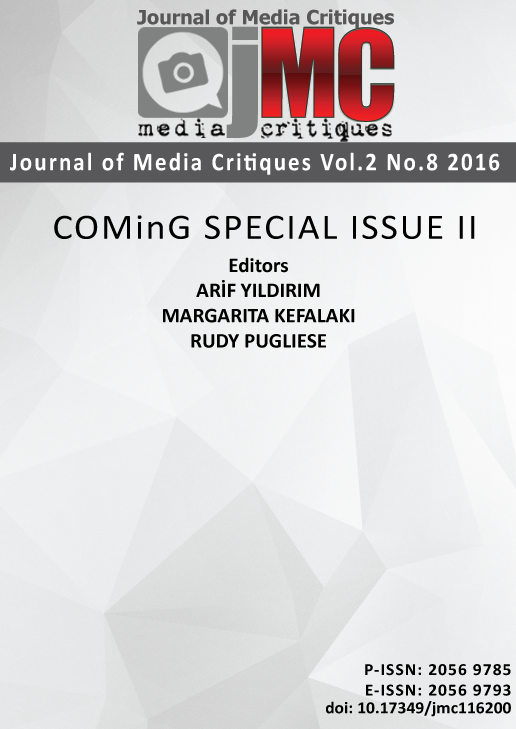POLITICAL COMMUNICATION AND INTERNATIONAL PUBLIC OPINION: A STUDY OF JOKOWI’S INDONESIA
POLITICAL COMMUNICATION AND INTERNATIONAL PUBLIC OPINION: A STUDY OF JOKOWI’S INDONESIA
Author(s): Sukawarsini DjelantikSubject(s): Media studies, Electoral systems, Politics and communication, Theory of Communication
Published by: University of Lincoln and World Experience Campus Foundation
Keywords: political communication; Jokowi; political party; Indonesia;
Summary/Abstract: Joko Widodo (nicknamed Jokowi) is Indonesia’s 7th President, elected amid strong popular hope for a new, clean, and effective government. With the support from Indonesia’s Democratic Party for Struggle (PDIP), Jokowi won popular support (53%) against Prabowo (47%) in the 2014 election. This paper analyzes the effectiveness of Jokowi’s political communication from the general election up to his presidency (2014-2015). Furthermore, the paper discusses Jokowi’s international image through verbal and non-verbal communication. Prabowo, his rival during the election, depicted Jokowi as an Enemy of Islam, a supporter of Christianity, an anti-Muslim, a Zionist, and a mere puppet of the West, in addition to drawing attention to his Chinese descent. Jokowi’s main supporters were volunteers, or “the people’s coalition” as the media called them. Jokowi’s victory was due to the strong support of volunteers who had made effective use of social media (Facebook, Twitter, SMS, and online games). Jokowi’s most significant volunteers were performers and musicians who successfully organized spectacular music concerts for free. These concerts enabled the increase of popular support significantly. After Jokowi became President, people’s expectations were very high. Their expectations were tempered by previous experiences when Indonesia was challenged by corruption perpetrated at various levels of government as well as business interests. This research aims to analyze Jokowi’s political communication performance and international image using the Strength, Weakness, Threat and Opportunity (SWOT) analysis. It concludes that Jokowi’s failures were due to poor political communication management. However, his changes in political strategies and management of coalition parties have successfully gained both media and popular support.
Journal: Journal of Media Critiques
- Issue Year: 2/2016
- Issue No: 8
- Page Range: 147-160
- Page Count: 14
- Language: English

